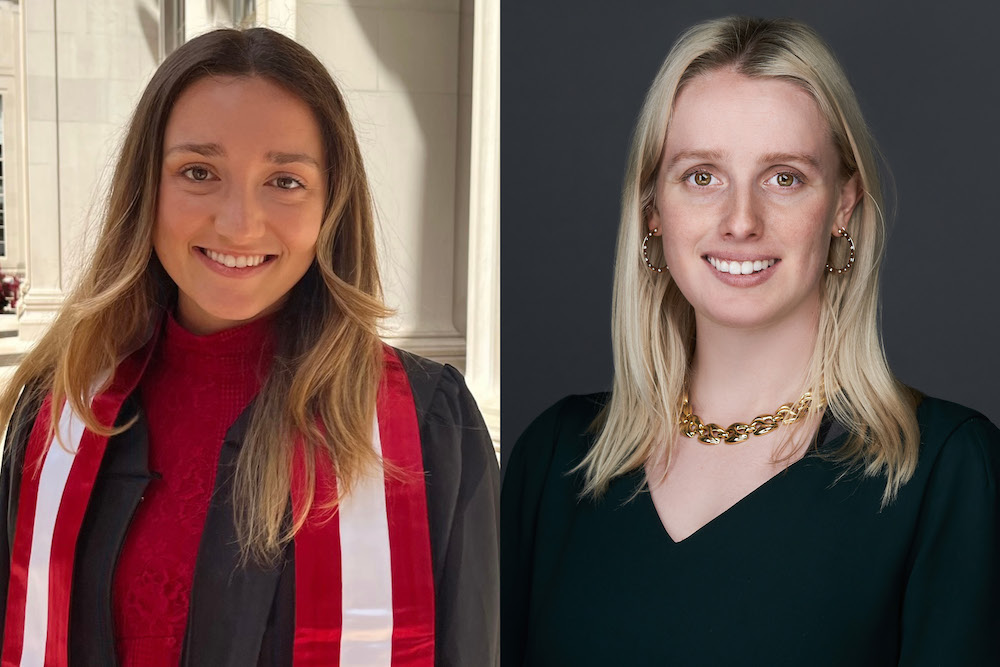
Ana Cristina Fiallo ’22
“I was first inspired to commit to a future in sustainable energy after the Category 4 Hurricane María took its course across my island home of Puerto Rico on September 20, 2017, in the midst of working on my college application to MIT,” says Ana Cristina Fiallo ’22, a recent computer science and urban science and planning graduate who minored in energy studies. The destruction to the island and its electricity grid opened her eyes to the fundamental importance of energy infrastructure and the “just transition to renewable, reliable energy sources in the face of climate change.” This passion has permeated all of her experiences at MIT, from the classroom to internships, Undergraduate Research Opportunity Program (UROP) appointments, student organizations, and beyond.
Fiallo engaged in several UROPs during her time at MIT, including projects that explored the implementation of sustainable energy technologies such as solar and battery storage within informal settlements; the use of satellite imagery and deep learning algorithms to assess damage from extreme weather events; and the role that machine learning can play in analyzing urban air pollution. Further, she participated in internships at the electric vehicle manufacturer Tesla and at GreenWatch, an organization dedicated to combatting greenwashing using artificial intelligence. Two highlights of Fiallo’s undergraduate energy experience were 11.165 Urban Energy Systems and Policy and 1.C01 Machine Learning for Sustainable Systems. These classes helped to lay the practical foundations for her understanding of the technical and socio-political aspects of the climate crisis.
Beyond the classroom and lab, Fiallo was active in many student groups, such as the Society of Hispanic Professional Engineers, DanceTroupe, MIT CodeIt, the Association of Puerto Rican students, and—especially—the Number Six Club, MIT’s chapter of the Delta Psi co-ed literary fraternity, “which has become my family at MIT from which I have learned so much.” Additionally, with the MIT Climate and Energy Club, she helped organize the MIT Energy Night for two years.
In fall 2022, Fiallo plans to continue her studies at MIT by pursuing a master’s in engineering in the Department of Civil and Environmental Engineering with a focus on climate, environment, and sustainability. “This passion and interest in resilient energy development has continued with me from my first steps on MIT’s campus and into the MIT Energy Commons, to my last steps as an undergraduate senior, and beyond,” she says.
Kara Rodby PhD ’22
“I always had an interest in sustainability. I think it stemmed from being very efficiency-minded my whole life,” says Kara Rodby PhD ’22. “My mom was very poor growing up, so she was always frugal. Even though we were much more privileged when I was growing up, she still exemplified efficiency.” Therefore, to Rodby, “being efficient—whether it’s with time, money, or resources—just makes sense, and certainly so in addressing climate change.” Before coming to MIT, Rodby studied environmental engineering at Northwestern University as an undergraduate, which helped to confirm her interest in energy storage technologies—but did not provide her with the complete toolset that she needed. This expanding interest is what pushed her to pursue a PhD in chemical engineering from MIT.
Rodby’s PhD research focused on redox flow batteries (RFBs), a type of electrochemical energy storage device that is attractive because it decouples energy and power by physically separating the energy storage capacity from the power components. While this advantage can make RFBs cost-competitive with other, more common batteries—such as lithium-ion—RFBs have seen minimal adoption. In particular, Rodby sought to explore the economic, political, and social determinants that have minimized RFBs’ use at scale and to address these barriers using techno-economic modeling. Rodby also played an important role in the second chapter of MITEI’s recent Future of Energy Storage report where she provided techno-economic and qualitative analyses on RFBs.
Outside of the lab, Rodby was deeply involved with student activism, addressing inequity and discrimination in academia and at MIT. Having experienced these issues firsthand, Rodby was inspired to meet with other students and to participate in working groups and committees to find lasting solutions. During her last two years, Rodby became strongly involved in the Graduate Student Union. She says, “Winning our student union just prior to my graduation was by far the most rewarding and meaningful thing I’ve been a part of in my life. It demonstrated that if we come together and work hard, we can truly do anything.”
Currently, Rodby is working for Volta Energy Technologies as a technical analyst. Volta is a venture capital firm that raises funds to invest in hard-tech energy storage startups. In this position, she analyzes the technologies of incoming companies to help Volta determine whether to invest in them. Pursuing an education and career in renewable energy harkens back to her appreciation for efficiency. “To me, it feels like addressing climate change by developing sustainable energy is also simultaneously building the most efficient and sensible energy system.”
This article appears in the Spring 2022 issue of Energy Futures.